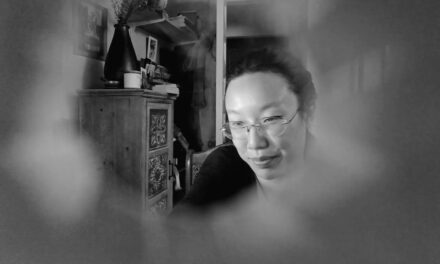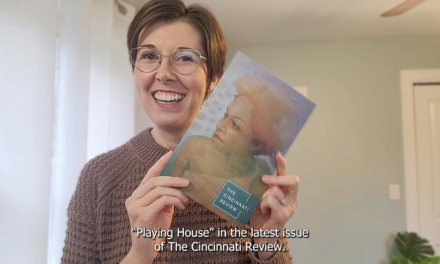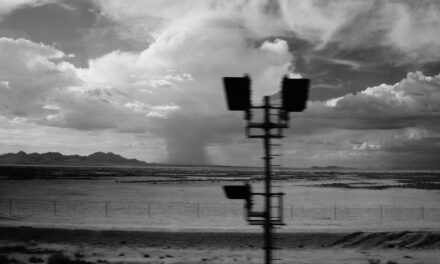 Writers are consummate observers: we stand to the side, notebooks in hand, pencils behind our ears, eager to see and understand the world around us. In issue 13.1, two contributors take on the task of processing the most universal human experiences—birth and death—and they do it by attempting to remain above the fray even as they enter it. In Robert Foreman’s story “Awe,” a man goes to watch the birth of a child by a near stranger. Hoping to feel something new, to experience “awe,” he finds himself in over his head. In Anatoly Molotkov’s poem “Obituary,” the author takes a sidelong look at death, “hid[ing] among reflections” like a man who observes the Medusa by hiding around a corner, able to look on her face only through a mirror.
Writers are consummate observers: we stand to the side, notebooks in hand, pencils behind our ears, eager to see and understand the world around us. In issue 13.1, two contributors take on the task of processing the most universal human experiences—birth and death—and they do it by attempting to remain above the fray even as they enter it. In Robert Foreman’s story “Awe,” a man goes to watch the birth of a child by a near stranger. Hoping to feel something new, to experience “awe,” he finds himself in over his head. In Anatoly Molotkov’s poem “Obituary,” the author takes a sidelong look at death, “hid[ing] among reflections” like a man who observes the Medusa by hiding around a corner, able to look on her face only through a mirror.
Robert Foreman: My first daughter’s birth was a c-section. I wasn’t allowed in the room until the very end, and a surgeon was there, too. It was a joyful experience, but it was nothing like when my wife gave birth to our second daughter, without the intervention of a surgeon, or for that matter an epidural. Whereas our first daughter’s birth was thrilling, the second’s was astonishing, and I found that when it was over I felt like a different person. I wasn’t a different person; I have all the same bad habits I had before, and I’m still a bad driver. I spend a lot of my time looking at things on eBay that I can’t afford. But I knew, as soon as Daughter Two was born, that what had happened there was unlike anything else that had happened in all the other rooms I’d been in.
Writing “Awe,” I was at least as interested in my distance from the event of childbirth as I was in the sheer astonishment of childbirth. The awareness of my secondariness to the experience colors all my memories of it. In order to represent and exaggerate that distance, I made the witness to childbirth in “Awe” a virtual stranger to the woman giving birth and to everyone else present. The moderate fun and great difficulty of writing the story lay in figuring out just what circumstances would lead someone to want to see a baby getting born, and what sort of people would plausibly let a stranger watch the birth of their child. I wanted to convey the life-changing, life-making beauty of human reproduction, but I had to work my way toward it via fabrication.
Anatoly Molotkov: When I write prose, I’m focused on telling a compelling story, on characters whose reality I expect to be authentic to the reader—it should all come together, “make sense.” In poetry, I seek a less linear approach to discourse. Poetry’s workings defy logic. A poem should not be completely understood by either the reader or the writer—instead, it should open an interpretive space in which multiple possibilities coexist. “Obituary” begins a series of poems that attempt to project a distinct, confident voice via the use of statements that do not easily lend themselves to causative relationships yet accrue as symptoms of the speaker’s views and, more generally, of the human condition.










